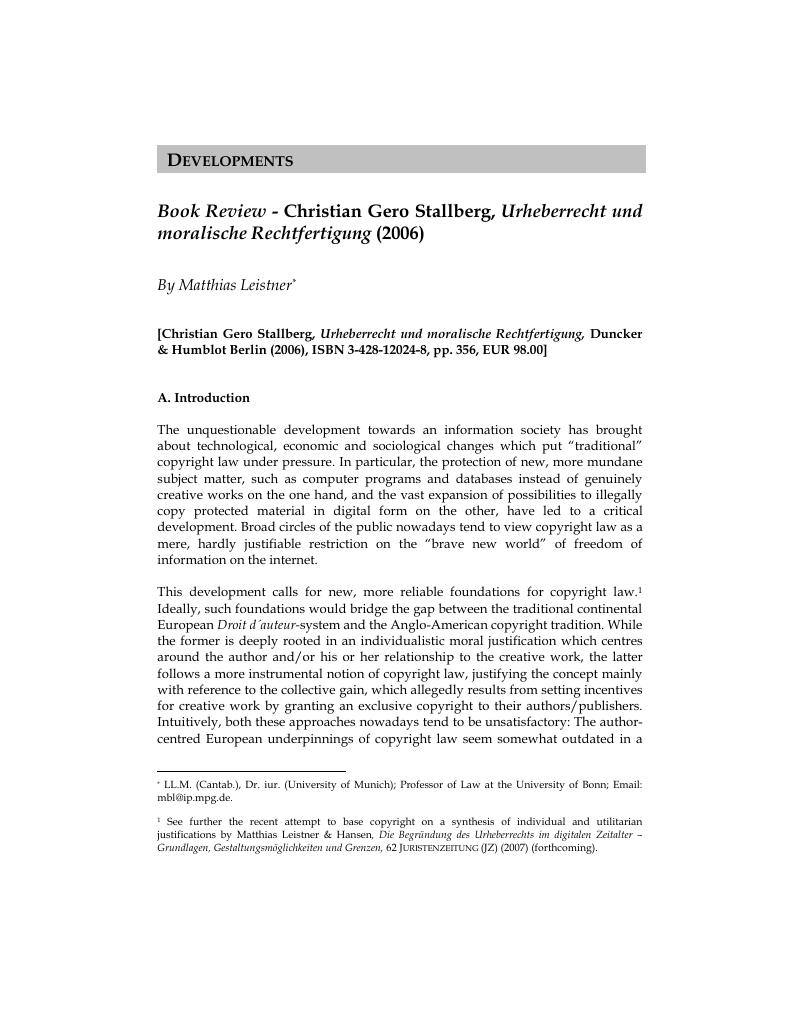No CrossRef data available.
Article contents
Book Review - Christian Gero Stallberg, Urheberrecht und moralische Rechtfertigung (2006) - [Christian Gero Stallberg, Urheberrecht und moralische Rechtfertigung, Duncker & Humblot Berlin (2006), ISBN 3-428-12024-8, pp. 356, EUR 98.00]
Published online by Cambridge University Press: 06 March 2019
Abstract

- Type
- Developments
- Information
- German Law Journal , Volume 8 , Issue 10: Special issue – ‘Coup d'état in the courtroom’ , 01 October 2007 , pp. 1021 - 1025
- Copyright
- Copyright © 2007 by German Law Journal GbR
References
1 See further the recent attempt to base copyright on a synthesis of individual and utilitarian justifications by Matthias Leistner & Hansen, Die Begründung des Urheberrechts im digitalen Zeitalter – Grundlagen, Gestaltungsmöglichkeiten und Grenzen, 62 Juristenzeitung (JZ) (2007) (forthcoming).Google Scholar
2 Remarkably, Locke himself never intended to apply his approach to non-physical property, as Pascal Oberndörfer, Die philosophische Grundlage des Urheberrechts (2005), has pointed out recently in his study on philosophical foundations of copyright which is essentially limited to an analysis of Locke's labour theory.Google Scholar
3 See Matthew H. Kramer, John Locke and the Origins of Private Property: Philosophical Explorations of Individualism, Community, and Equality (1997).Google Scholar
4 See Dreier, Thomas, Book Review: Christian G. Stallberg, Urheberrecht und Moralische Rechtfertigung, 109 Gewerblicher Rechtsschutz und Urheberrecht (GRUR) 128, at 129 (2007); however, with a more favorable assessment Hannes Rösler, Book Review: Christian G. Stallberg, Urheberrecht und Moralische Rechtfertigung, 62 JZ 185, at 186 (2007).Google Scholar
5 See further Leistner, & Hansen, , supra note 1.Google Scholar


